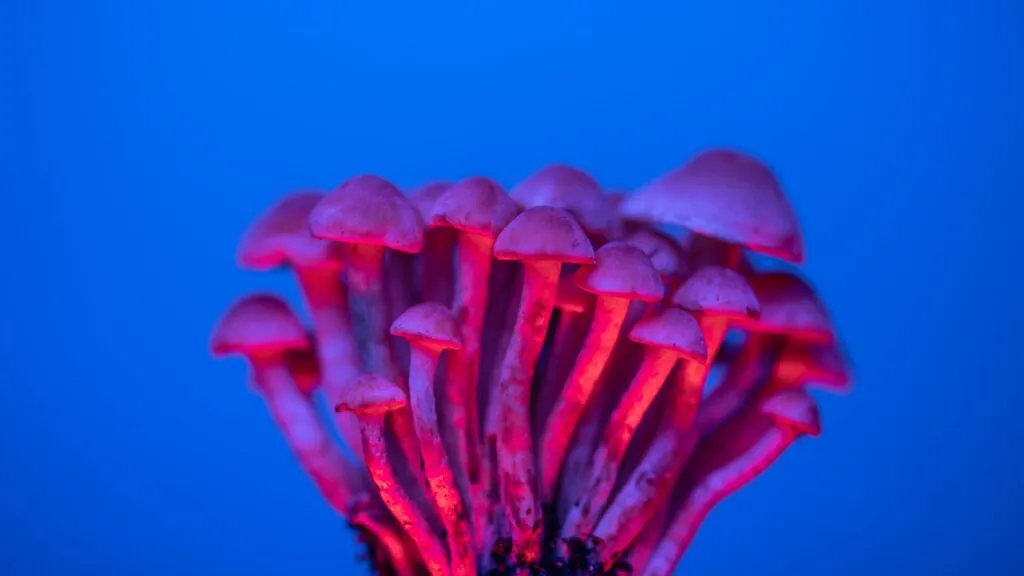Psychedelic-assisted psychotherapy (PAP) in bereavement support may have benefits for families coping with the loss of a loved one.
However, gauging the potential impacts of psychedelic utilization among grieving individuals requires careful consideration when assessing quality outcomes, according to Ryan Moss, chief science officer at Filament Health Corp. The clinical-stage natural psychedelic drug development company is based in British Columbia, Canada.
Determining the effectiveness of psychedelic utilization can be difficult, because people react to them in different ways, Moss stated. For some, PAP therapies can be a positive experience that assists them in addressing their emotions throughout the grieving process, Moss said. Others can experience heightened feelings of loss and sadness that can complicate their grief, he indicated.
“This transformative experience can enable individuals to tap into feelings of connectedness, both with others and with a transcendent aspect of themselves,” Moss told Hospice News in an email. “This can result in the emergence of positive, prosocial emotions and attitudes like joy, gratitude, love, care and compassion. Those who undergo challenging or distressing experiences during their psychedelic journeys may see their grief worsen. This underscores the importance of receiving proper therapeutic guidance when embarking on a psychedelic experience, as an unguided challenging experience could potentially be harmful for someone already dealing with grief.”
Scope of psychedelic bereavement support
A variety of psychedelics have been used by people experiencing prolonged periods of grief, including
psilocybin mushrooms, ayahuasca, lysergic acid diethylamide (LSD) and 3,4-methylenedioxy-methamphetamine (MDMA).
Participants typically undergo PAP therapy in a structured process that involves weeks of preparation before the session occurs, Moss said. The sessions are often led by a physician and a therapist who support the individual throughout their psychedelic encounter. These health professionals also provide several weeks of consultations following the session to integrate their psychedelic experiences throughout the grief process, he explained.
This approach has demonstrated to be “the most effective” in terms of addressing grief, as opposed to individuals taking these substances without clinical guidance, Moss said. But more research is needed to better understand the full scope of psychedelic utilization in grief support, he stated.
“Additional clinical investigations are necessary to clarify the effectiveness of PAP as a treatment for individuals dealing with prolonged grief [and] PAP’s potential to aid in the management of various psychological conditions and disorders” Moss said. “However, the inherent risks associated with these substances underline the imperative need for more comprehensive data on its efficacy.”
Research around psychedelic utilization in bereavement is limited but growing.
Much of the existing data centers around the impacts in mental health support for conditions such as anxiety, post-traumatic stress disorder and depression.
Case in point, more than a third (37%) of participants in a recent psilocybin therapy trial displayed “meaningful responses” in treating episodes of depression, according to a study published in the journal Neuropsychopharmacology.
Meanwhile, a 2023 study published in the Journal of Psychoactive Drugs found that roughly 42% of 363 recreational psychedelic users experiencing a bereavement event noted a reduction in symptoms of complicated grief after two weeks of utilization.
Some psychedelic users reported emotional breakthroughs that were positively associated with improved bereavement experiences, while others observed “challenging and converse” reactions, the researchers noted.
The study’s findings suggest that the development of psychedelic-assisted therapy protocols could be used to “target symptoms of grief,” and offer “an alternative to current grief treatment options,” the researchers stated.
Another 2020 study examined the impacts of ayahuasca use in treating depression among grieving individuals in Peru.
Participants included 50 individuals that had attended an indigenous Shipibo ayahuasca ceremony and received the plant-based psychedelic throughout the course of one year following the loss of a loved one. A large portion of participants, 78.4%, described the experience as having a direct effect on their grieving process, the Psychopharmacology study found.
The results illustrate a positive relationship between high levels of acceptance and decentering, or mindfulness around emotions, the researchers indicated.
“A significant improvement in the severity of grief and the high effect size maintained over a year’s follow-up are sufficiently encouraging to warrant further research,” the researchers stated. “Furthermore, the assessment of experiential avoidance and decentering highlights the improvement of these mechanisms of change following drinking ayahuasca and their relation to grief improvement. More research is necessary to better understand ayahuasca’s therapeutic value in terms of relief from grief symptoms.”
Studies such as these highlight the importance of specific aspects of psychedelic encounters for grieving individuals, according to Moss. Efforts growing in other countries around psychedelic use in bereavement support could gain traction as far as trends taking shape in the United States and Canada, he indicated.
Determining how psychedelics could be utilized in future grief support services will include not only more research, but also greater resources of health professionals who understand how to navigate administering these substances, Moss added.
“It has been found that individuals who report having profound emotional breakthroughs during their psychedelic experiences tend to experience greater relief from the severity of their grief,” Moss told Hospice News. “One can envision a future in which patients struggling with prolonged grief might be recommended a PAP session by their health care provider or therapist. In this scenario, they could visit a specialized clinic where they would receive both the psychedelic substance and therapeutic support in a coordinated manner.”
Companies featured in this article:
Filament Health Corp., Journal of Psychoactive Drugs, Journal of Psychopharmacology, Neuropsychopharmacology



